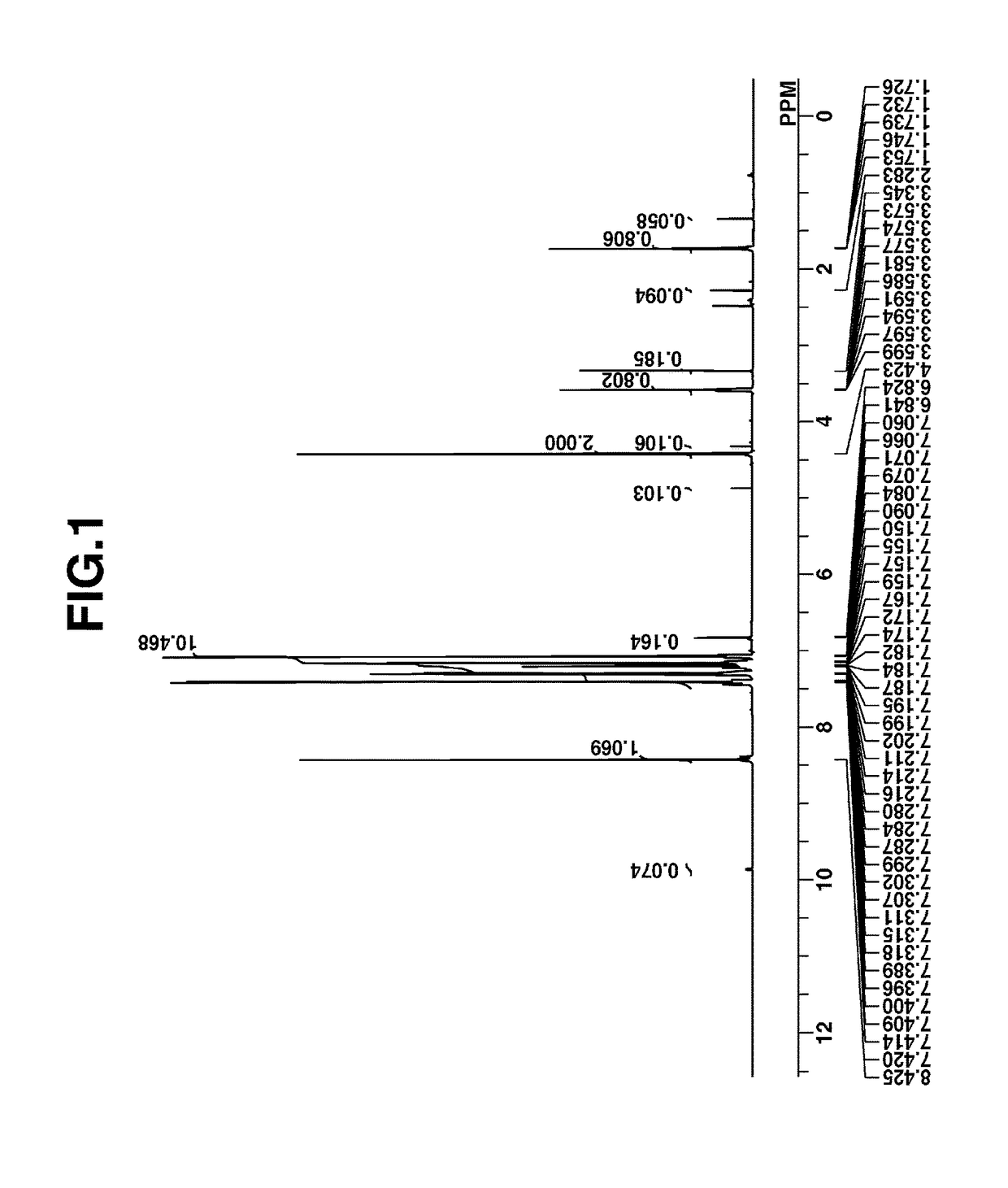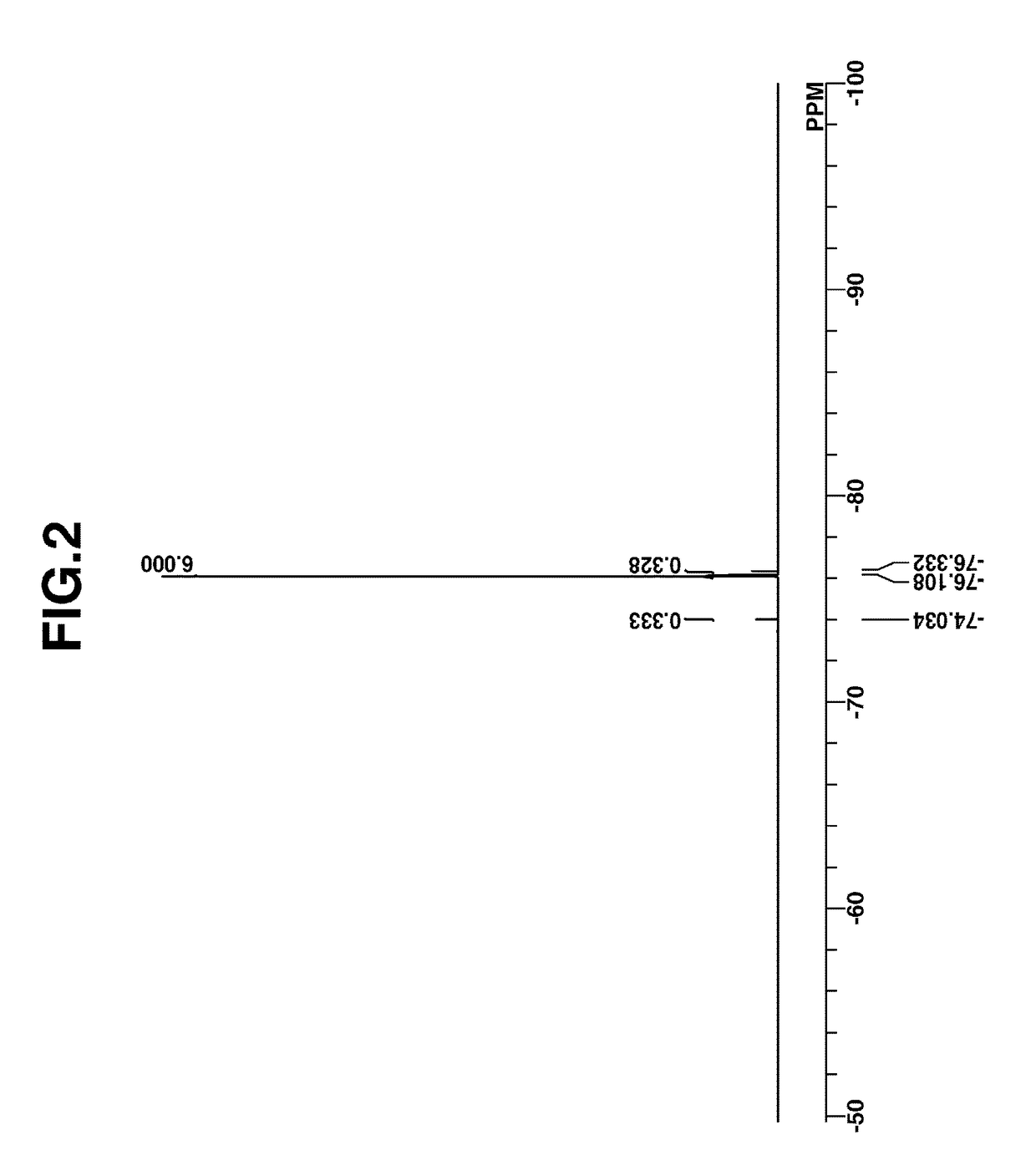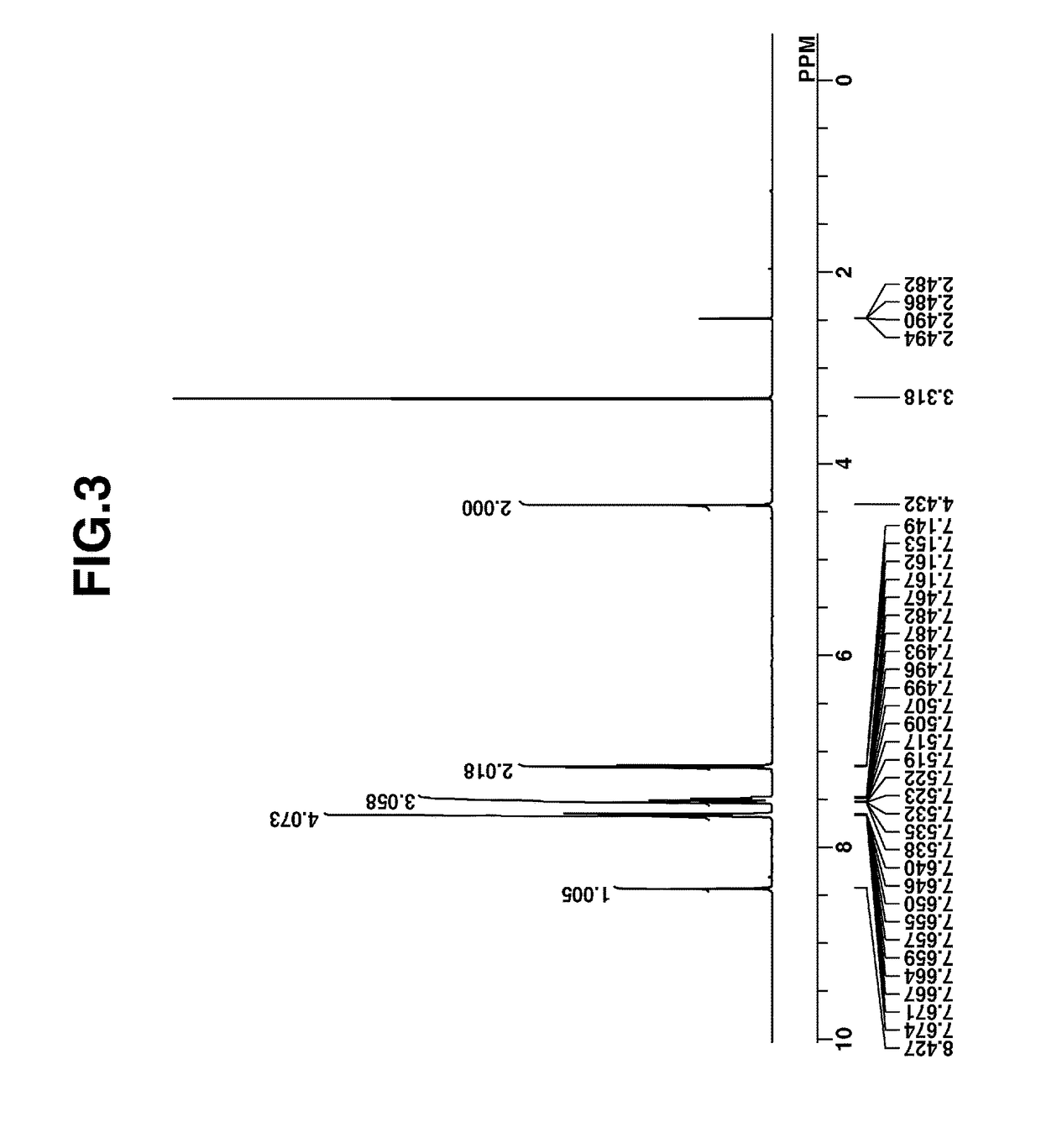Sulfonium compound, resist composition, and patterning process
a technology of resist composition and compound, applied in the field of sulfonium compound, resist composition, and patterning process, can solve the problems of reducing the development rate of resist composition, limiting the application of these salts to the resist composition, and affecting the development speed of the resist composition, so as to improve the contrast, reduce the lwr, and the effect of high resolution
- Summary
- Abstract
- Description
- Claims
- Application Information
AI Technical Summary
Benefits of technology
Problems solved by technology
Method used
Image
Examples
example 1-1
f Intermediate A
[0202]
[0203]In a mixture of 550 g of THF and 133 g of water was dissolved 220 g of 4-phenylthiophenyl. At room temperature, 25 wt % caustic soda was added dropwise to the solution, which was aged for 15 minutes. Thereafter, a solution of 352 g of Compound A in 250 g of THF was added dropwise thereto at room temperature. The solution was aged overnight, after which 5 wt % hydrochloric acid was added thereto for quenching. The reaction solution was diluted with 620 g of hexane and 620 g of toluene, and washed with water. 1 wt % caustic soda was added to the organic layer, followed by separation. The organic layer was combined with 2.5 wt % hydrochloric acid and washed with water again, followed by separation. The organic layer was concentrated, obtaining 208 g of the end compound, Intermediate A as colorless oily matter (yield 65%).
[0204]Intermediate A was analyzed by spectroscopy. The NMR spectra, 1H- and 19F-NMR in DMSO-d are shown in FIGS. 1 and 2. In 1H-NMR analysi...
example 1-2
f Intermediate B
[0207]
[0208]Intermediate A, 183 g, was dissolved in 1,300 g of acetic acid. Under ice cooling, 51 g of 35 wt % hydrogen peroxide water was added to the solution. The solution was aged overnight at room temperature, after which 25 g of sodium thiosulfate in 120 g of water was added dropwise at room temperature. After 1 hour of stirring, the reaction solution was diluted with 2,000 g of ethyl acetate and 1,000 g of toluene and washed with 1,000 g of water. The organic layer was combined with 1 wt % caustic soda, followed by separation. Once the organic layer was washed with water, the organic layer was combined with 2.5 wt % hydrochloric acid, followed by separation. The organic layer was washed with water and concentrated, after which ethyl acetate was added to the concentrate to form a 50 wt % ethyl acetate solution. The solution was added dropwise to a mixture of n-hexane and toluene (2:1 in weight ratio) for crystallization. The resulting white powder was dried in ...
example 1-3
f Intermediate C
[0212]
[0213]Intermediate B, 117 g, was dissolved in a mixture of 69 g of diisopropylethylamine and 590 g of acetonitrile. Under ice cooling, 36 g of chloromethyl methyl ether was added dropwise to the solution. The solution was aged overnight at room temperature, after which it was combined with 800 g of water and 800 g of toluene, followed by separation. The organic layer was once washed with water, washed with 1 wt % ammonia water, and washed with water again. The solution was further washed with 1 wt % hydrochloric acid and washed with water. The organic layer was taken out and concentrated under reduced pressure. The resulting solid was dried in vacuum, obtaining 127 g of the end compound, Intermediate C as white crystal (yield 82%).
[0214]Intermediate C was analyzed by spectroscopy. The NMR spectra, 1H- and 19F-NMR in DMSO-d6 are shown in FIGS. 5 and 6. In 1H-NMR analysis, minute amounts of residual solvents (diisopropyl ether, MIBK, water) were observed.[0215]IR...
PUM
| Property | Measurement | Unit |
|---|---|---|
| refractive index | aaaaa | aaaaa |
| feature size | aaaaa | aaaaa |
| refractive index | aaaaa | aaaaa |
Abstract
Description
Claims
Application Information
 Login to View More
Login to View More - R&D
- Intellectual Property
- Life Sciences
- Materials
- Tech Scout
- Unparalleled Data Quality
- Higher Quality Content
- 60% Fewer Hallucinations
Browse by: Latest US Patents, China's latest patents, Technical Efficacy Thesaurus, Application Domain, Technology Topic, Popular Technical Reports.
© 2025 PatSnap. All rights reserved.Legal|Privacy policy|Modern Slavery Act Transparency Statement|Sitemap|About US| Contact US: help@patsnap.com



